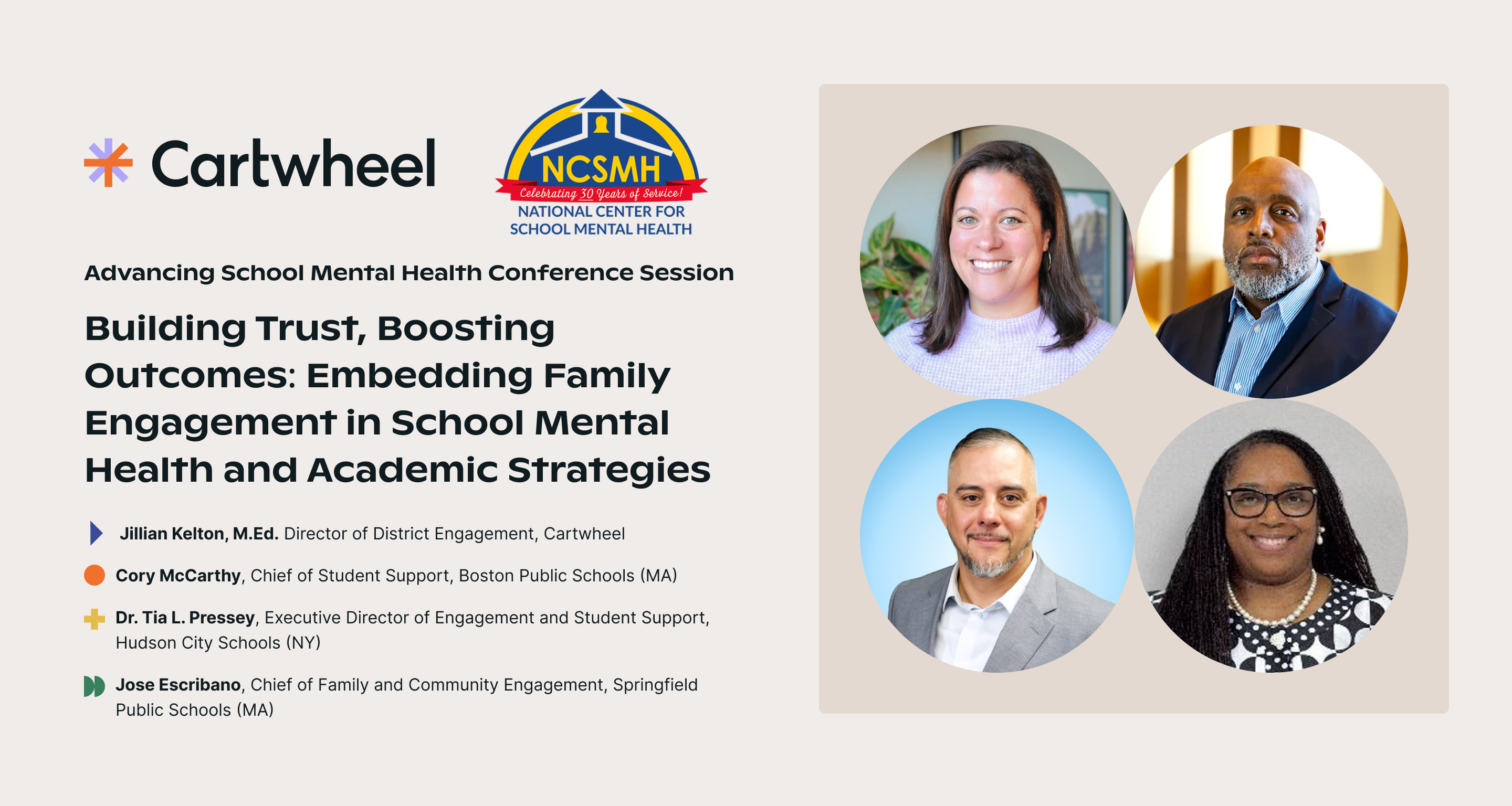Parents are facing unprecedented levels of stress. So much in fact that the U.S. Surgeon General recently issued an advisory on it. By doing so, he said he not only hopes to bring awareness to the mental health challenges confronting parents and caregivers today, but to lay out a plan for addressing it.
According to the report, a recent study by the American Psychological Association revealed that 48 percent of parents say most days their stress is completely overwhelming, compared with 26 percent of other adults who reported the same. Additionally, many parents, single parents most of all, report feeling lonelier than other adults.
This advisory is likely no surprise to the many parents and caregivers who face stress on a daily basis, nor is it to the therapists who’ve seen the ways in which the state of the world has impacted mental health over the last few years.
But what is great about the Surgeon General’s comments is that he’s bringing this conversation to the forefront, breaking down barriers and sounding the alarm for a candid discussion on this pressing issue.
Why Parents and Caregivers Are So Stressed Out
While parenting and caregiving have always been stressful, there are additional challenges families have to face today that previous generations didn’t.
On top of protecting children from harm, worrying about finances, and managing teenagers searching for independence, the report calls out the complexity of social media use and boundaries around it, concerns about the youth mental health crisis, and an epidemic of loneliness that disproportionately affects young people and parents as just a few of the reasons why caring for kids is harder than ever before.
The Impact of Parents' Mental Health on Kids
Parents and caregivers are struggling, and we are seeing the toll of the accumulated stress on them. Parent stress can also have a real and lasting impact on the mental health of their kids.
A recent study found that one in 14 children aged 0–17 years had a parent who reported poor mental health, and those children were more likely to have poor general health, to have a mental, emotional, or developmental disability, to have adverse childhood experiences such as exposure to violence or family disruptions including divorce, and to be living in poverty.
“High levels of stress, especially chronic stress, understandably impacts our mood, decision making, and parenting. Children also learn through modeling, so one of the most important parts of parenting is actually caring for oneself,” says Juliana Chen, MD, Chief Medical Officer at Cartwheel.
"One of the most important parts of parenting is actually caring for oneself." Juliana Chen, MD, Cartwheel's Chief Medical Officer
Parents and caregivers are children’s primary role models when it comes to understanding how to respond to life’s ups and downs, as well as how to take care of themselves, but most caregivers put their children first. Let this serve as a reminder that taking care of oneself isn’t selfish, it will be beneficial to your children, too.
This isn’t to suggest that prioritizing moments of self-care will suddenly make all your stress and struggles as a parent or caregiver disappear, or that self-care is even possible for everyone]. However, there are steps parents and caregivers can take to decrease their stress around parenting.
It isn’t easy, and no one should be made to believe that if they are struggling with the stressors of life/parenting/work, etc. that they are failing. The more we can all work together to build a culture of normalization and support, so hopefully the less parents and caregivers will feel it is an individual failure that they are struggling.
How Family, Friends, and Community Members Can Help
Sometimes the act of showing up without being asked can go a long way for a stressed parent or caregiver, even if it’s just fifteen minutes to play with their kid and give them a chance to breathe.
The Surgeon General emphasizes this point: “Too often, when someone is struggling, we wait for an invitation to help, or perhaps we worry we don’t have anything of value to offer. Simply showing up can make all the difference in the world to another person.”
The Making Caring Common Project reports that about two-thirds of Americans say that it’s “very important” or “important” to them to be caring, and high percentages of Americans report engaging in caring acts, including helping a neighbor, going out of their way to express gratitude, or reaching out to someone who is lonely.
Sometimes the act of showing up without being asked can go a long way for a stressed parent or caregiver.
Find ways, big or small, to show care and compassion for a parent or caregiver in your life. It can be as simple as starting a friendly conversation at your child’s school or volunteering with members of your faith community in ways that offer support. Research shows that helping others is associated with greater well-being, health, and longevity, so long as the person doing the helping isn’t overwhelmed by the helping tasks. So if you are a parent or caregiver yourself and you’d like to help others, stay in tune with your own capacity to help so that you do not become overwhelmed.
How Schools Can Help
Caring for the adults in a child’s world is one of the most important ways to take care of kids and families. By offering support to families, students of all ages will benefit mentally and emotionally, making them more likely to be successful in school. Schools are an important pillar of the community and often might be the first place families go when they need help. Here are a few ways schools can help:
Foster conversations around mental health and well-being
Creating spaces to have open dialogue about mental health helps reduce stigma and lets people know they aren’t alone and it’s OK to not be OK. This could be through hosting educational events or virtual webinars for parents and caregivers on a range of mental health and wellness topics, including time for discussion and Q&A. It can also be helpful for school staff to model SEL language in front of students, parents, and caregivers. And when sending home communication or reaching out via phone, staff can let families know the ways they are available to provide support and the ways schools can help connect families to community support resources.
Provide resources and opportunities for connection
We know social connection can decrease the negative effects of stress. Creating opportunities for social connection can help parents and caregivers find a community and build supportive networks.
One way to do this would be pairing new families with other families, in particular with shared cultural background and/or language needs, to welcome them to the school.
Creating space for parents and caregivers to meet outside of back-to-school night and parent teacher conferences, where they can connect and have conversation around current struggles or issues they are facing, can also be helpful. Having a community partner facilitate these events is also a way to strengthen school/family/community connections.
Strengthen school-based partnerships with community programs
Schools are often the front door for many families looking to access services in the community. This may be especially true for families who are new to a community or have limited connectivity to the surrounding community. By establishing and strengthening partnerships with community groups and community health organizations, schools can connect parents to important resources they might not otherwise know how to access. Consider inviting community partners to attend and set up information tables at school events as a way to facilitate and provide space to increase school/family/community relationships.
What Parents and Caregivers Can Do to Ease the Stress
Invest in a support system
With so many responsibilities, it can feel hard and time consuming to invest in friendships and connect with others. But it will be worth it. Building a support system, especially including other caregivers and those closest to you, can be very emotionally and practically supportive and make a huge difference in the day-to-day experience of parenting.
Finding people who can relate to what you’re going through and offer emotional support—ones who can validate what you’re experiencing—can help you navigate the various challenges of parenting and help you feel less alone.
Watch: Five Keys to Parenting Children with ADHD
Having a support system in place can also hopefully offer you practical, hands-on support, both with the day-to-day (for instance, if you need help with school pick up) and especially during times of higher need or crisis.
To build your support system, you can start small; try sending a text message to a friend or acquaintance to make a connection, and then find ways to strengthen that connection. Or look for caregiver support groups in your area to meet other individuals in similar situations. You can also turn to faith-based groups, community organizations, or school parent groups, like the PTA.
Get ahead of stress
It’s impossible to pour from an empty cup. Try to recognize when your cup is becoming depleted and take small actions to fill it up.
Additionally, things like exercising, moving our bodies, spending time in nature or getting outside in some way, connecting socially with friends or family members, taking a few moments for yourself, or practicing mindfulness can make a difference.
Sometimes taking even these small actions can feel overwhelming or impossible. If that’s the case, try instead to set boundaries and say no to things that deplete you when you can, if even with smaller things, which may help you find a minute or two to yourself.
Of course, when faced with more significant stressors like food or housing insecurity or community violence, the strain caregivers carry can feel impossible to overcome. Connecting to community resources is one way to get support. If you’re not sure where to start, talking to a social worker at your child’s school or a local community center may be a good way to connect to local resources. They may be able to help introduce you to local agencies, like food banks and faith-based organizations, providing support to families.
Do not suffer alone
As the Surgeon General said, “we must learn to view asking for help and accepting help as acts of strength, not weakness.”
Know that you do not need to suffer, and you do not need to suffer alone. Recognize the signs of mental health challenges and don’t be afraid to reach out for help.
If you notice that you’re more irritable, your sleep or appetite are impacted, you are feeling less motivated or less able to concentrate, or you are not finding enjoyment in things you used to enjoy, speaking with a professional may help. You can speak with your primary care provider or reach out to a mental health professional for support.
Systemic Changes to Decrease Parent Stress
It’s worth noting that while there are things that can be done at the micro level, large-scale systemic changes need to happen as well in order to make parenting sustainable.
Among these, the report references child tax credits in order to bolster financial support for families, access to affordable mental health care, adequate paid time off for families to be with newborns or sick children, and safe libraries, playgrounds, and community centers for children to play and learn while fostering community amongst their caregivers.
Related: Parent Guidance Sessions Offer Caregivers Support, Skills, and Resources
It’s worth noting parent and caregiver stressors exist in the context of larger systemic barriers–including paid time off, access to affordable mental health care, and the financial burden of raising a child in today’s economy–with the Surgeon General's Advisory sharing various potential solutions to address them. And while communities and governments work to find sustainable solutions, we encourage school communities to build helpful supports for families, and encourage parents and caregivers to remember to prioritize themselves."
If you or someone you love is experiencing feelings of hopelessness or dealing with thoughts about suicide, there are free resources to help. Call or text 988 or text TALK to 741741 to reach free, 24/7 support.





